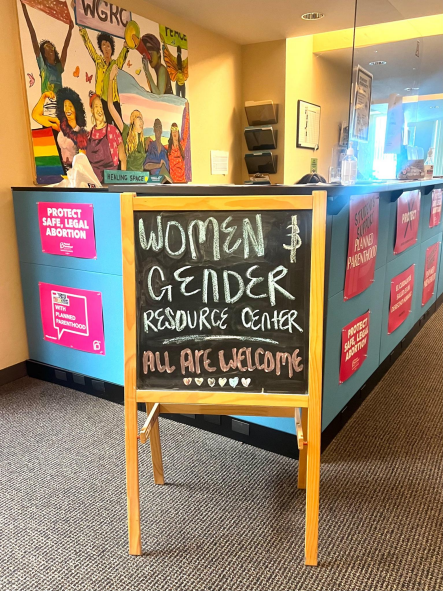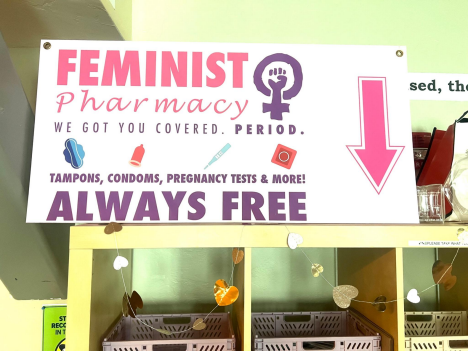Since the U.S. Supreme Court overturned Roe v. Wade in the summer 2022, University of Arizona students have been requesting plan B at a record rate.
In Arizona today, the law states that having an abortion is legal if the procedure occurs before the 15 week mark. After 15 weeks, abortion is illegal except in the case of rape or incest.
Kim Dominguez, director of the Women’s Gender and Resource Center, said keeping plan B in stock has been difficult so far this academic year. In fall 2022, the center distributed more than 300 plan B pills.
Due to high demand, this costly product — sold at an average price of $40-$50 — is being kept behind the service desk, where a staff member distributes the medication for free upon request.
The WGRC’s “Feminist Pharmacy” also offers other products free of charge, including period products such as tampons and pads, as well as sexual health items like condoms, dental dams and pregnancy tests.
To keep up with high demand, the WGRC received support from organizations like Planned Parenthood, which donated 150 safe sex products including condoms, pregnancy tests and plan B, according to Dominguez.
This pharmacy is run by the center’s internship program commonly called “FORCE,” which stands for Feminists Organized to Resist, Create and Empower.
Desk assistant Lilly Arthur emphasized that there is always someone to talk to at the WGRC when feeling concerned.
“I know for me, it’s really comforting to know the menstrual products are always here,” Arthur said, “and that we care and we want [students] to be well.”

Audrie Ford, coordinator of Feminist Engagement at WGRC, said the center tries to be a welcoming space to any students looking for help.
“We are a space for anyone regardless of your identity, regardless of how you express your gender,” Ford said. “So we do center women, femme, trans and nonbinary and two-spirit folks and we want this space to be especially safe for them on campus and the resources to especially center them. But otherwise, anyone can come here and hang out and enjoy the space and kind of make a bit of what you want it to be, it’s a very flexible space for students.”
Additionally, for any students facing food insecurity, housing instability or who have any questions about reproductive health, there are people who can provide or find answers. The WGRC is connected with several resources like graduate assistants and a peer advisor. Daijon Christie, a financial aid peer advisor, offers students help with scholarships, FAFSA and budgeting. Graduate assistant Blu Lopez Au focuses on mental health and wellness programs.
If any students are facing food insecurity, the center offers nourishing products like bread, milk and eggs. Emergency food bags are also available for students in need.
The WGRC is open from 9 a.m. until 5 p.m. Monday through Friday. It can be found inside the Center for Student Involvement and Leadership on the fourth floor of the Student Union Memorial Center. Find more information on the center’s website at wgrc.arizona.edu.
*Elli Deibert is a student studying at the University of Arizona School of Journalism taking the JOUR 306: Advanced Reporting class.
Follow the Daily Wildcat on Twitter








